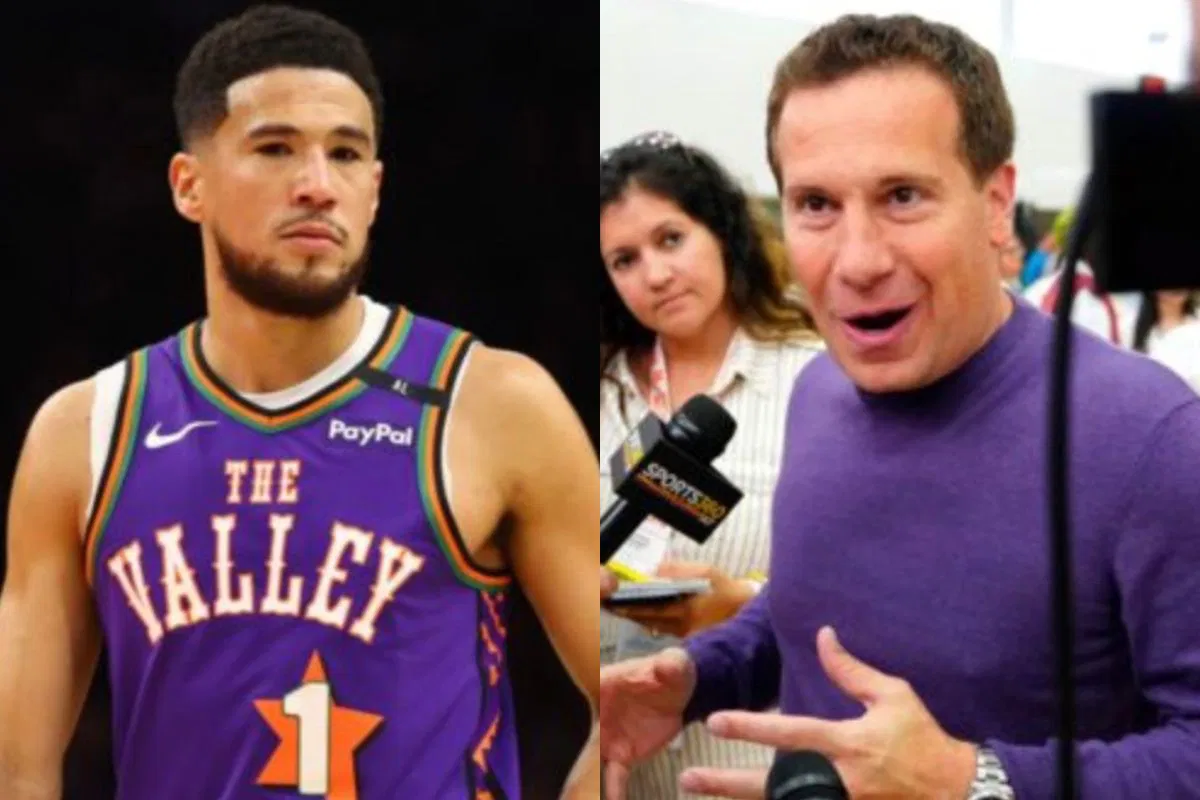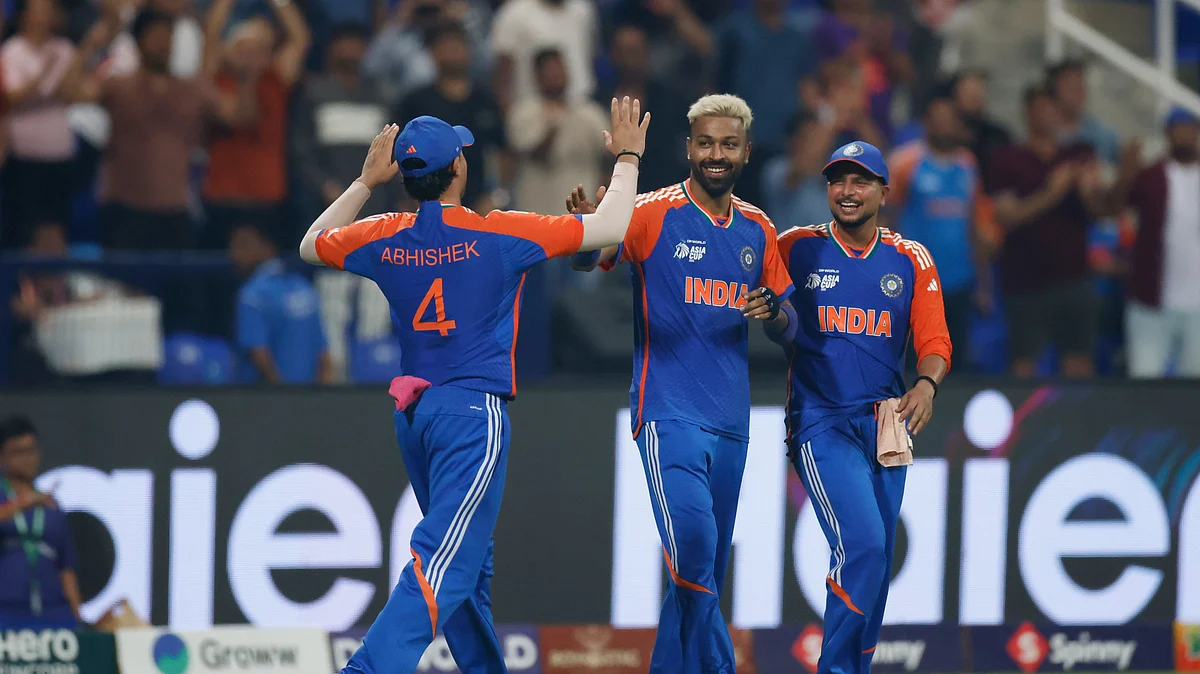
Devin Booker might be the face of Phoenix, but even he knows that star power alone cannot win an NBA season. Just weeks after trading Kevin Durant to Houston in a blockbuster shift, the Suns have quietly stacked their bench as three free agents just landed in the Valley while owner Mat Ishbia marked a $30 million victory off the court. Phoenix is bringing in guard Damion Baugh, guard David Duke Jr., and forward Tyrese Samuel. On paper, they’re depth pieces. In reality, they’re a sign of how the Suns are trying to rebuild.
Baugh, the 6’4” guard who split time between Charlotte and the G League last season, arrives with intriguing upside. His NBA stat line of 7.3 points, 3.7 assists, and 3.3 rebounds in 15 games doesn’t scream superstar. But his G League production with 12.5 points and 8.8 assists across 22 contests does speak for itself. That’s playmaking juice, the type of second-unit spark Phoenix lacked when Booker and new co-star Jalen Green sat. Then there’s Duke Jr., a grinder with four years of NBA experience.
Brooklyn fans remember his flashes as a rookie when he even cracked the starting lineup in 22 games. Last season in the G League with the Austin Spurs, he averaged 16.9 points and 6.6 rebounds. He’s built to fill gaps, defend wings, and give Phoenix the versatility it missed in key stretches last season. Samuel, meanwhile, is the big body the Suns desperately needed. He logged 10.8 points and 7.3 rebounds in the G League but really turned heads in Canada, torching defenses with 21.6 points and 10.9 rebounds per game for the Vancouver Bandits.
ADVERTISEMENT
Article continues below this ad
If nothing else, Samuel gives new head coach Jordan Ott an option to throw size and muscle at opposing frontcourts. And while the Phoenix Suns reshape the roster around Booker, its front office is also celebrating a win far beyond the court. On the same day the Suns finalized their depth signings, owner Mat Ishbia was busy celebrating a business victory. ESPN’s Brian Windhorst reported the Suns struck a two-year extension worth over $30 million per season with Gray Media to continue broadcasting games free over the air until 2028.
That’s $60+ million locked in, two years after Ishbia tore up a struggling regional sports network deal that many thought would cripple the team financially. Ishbia posted on X: “This free TV deal is for our fans! Do right by the fans and the community, and great things will happen. Super proud and excited to extend this deal until the end of 2028 and we’re grateful for the partnership with @azfamily.”
ADVERTISEMENT
Article continues below this ad
It’s more than feel-good PR. Suns’ local ratings more than doubled after games went free-to-air, and Mercury broadcasts saw an impressive 425% rise in viewership, boosted by a WNBA-wide ratings surge. This is what convinced Gray Media to double down, paying eight figures annually while Phoenix still grows its streaming service, Suns+. For Devin Booker, who’s entering his 11th season in Phoenix, these aren’t just footnotes.
Devin Booker remains at the center of it all
They’re part of the bigger question of what exactly the Suns are becoming post-Durant? Booker is signed through 2029-30 on a two-year, $145 million extension, a deal that makes him the unquestioned cornerstone.
At 28 years old, he’s in his prime, carrying career averages of 24.4 points, 5.2 assists, and 4.0 rebounds on 46.4% shooting. Pair that with Jalen Green’s high-octane scoring, and suddenly the Suns are pivoting from “big three” stardom to a two-headed backcourt surrounded by role players who can survive the marathon. The irony in the TV deal, though? Two years ago, Diamond Sports actually sued the Suns for walking away from their bankrupt RSN contract.
Phoenix settled, moved on, and even gave away free TV antennas to fans. Now, they’re back at the same revenue mark they sacrificed, and they’ve built a larger fanbase along the way. Leaguewide, the move has ripple effects. RSNs are collapsing everywhere, and teams like Utah, Charlotte, and New Orleans have already followed Phoenix’s blueprint. The Knicks, meanwhile, had to restructure with MSG Networks and saw $41 million slashed from their deal for 2025–26. As Ishbia put it, “It’s been a win-win.” Even the league has a new TV deal now.
For Booker’s Suns, though, stability means predictability. While other franchises scramble, Phoenix can build without worrying about a shrinking local TV pot. So what does this mean for Devin Booker himself? Easy. It ensures that the star who’s already secured an extension deal has an ownership group willing to play the long game. Booker has an organization stacking both basketball and business wins around him. That balance might be what keeps him locked into Phoenix through his prime years.
ADVERTISEMENT
Article continues below this ad
From losing Kevin Durant to Houston, to handing Jalen Green the keys as co-pilot, to adding quiet role players who could decide random February games, and to an owner redefining how NBA games get to fans. This is all about creating staying power. The roster tweaks are small, but for Devin Booker, they’re one more sign that the franchise has stopped swinging blindly and started playing the long game.
The real question now is if it will be enough to give Booker the postseason run that’s always eluded him? Phoenix has gambled on depth, on a bold TV blueprint, and on its star guard’s loyalty. The only thing left is to see if those bets translate when the games matter most.



